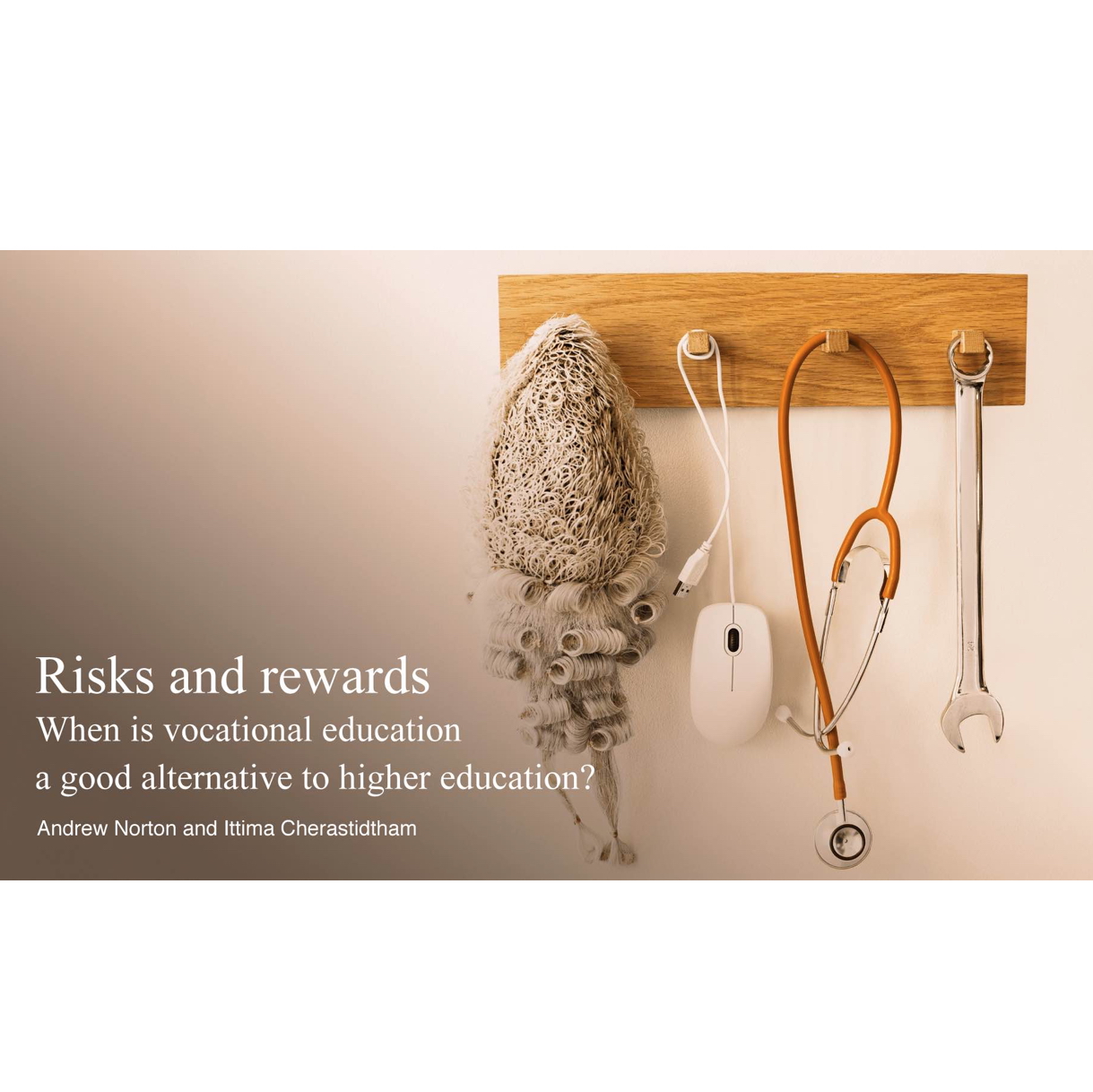The Grattan Institute (https://grattan.edu.au) is a non partisan think tank, focused on Australian public policy, whose work is independent, practical and rigorous. They aim to improve policy outcomes by engaging with both decision-makers and the community.

According to the Grattan Institute University debt and limited job prospects for University Graduates means that learning a trade at TAFE is a better prospect for stable and secure lifelong income.
Key points:
- The Grattan Institute August 2019 Report looks at the earning capacity of university students and those young people who learn a trade
- It finds for some people, particularly young men with lower ATAR scores, vocational occupations result in higher earnings
- The report comes as the vocational education industry is reporting a 43 per cent drop in trade-based enrolments
- One commentator says the idea that university is the only option often comes from parents
Vocational diplomas in construction, engineering, and commerce typically lead to higher lifetime incomes than many low-ATAR university graduates are likely to earn, especially those with degrees in popular fields such as science and humanities.
Higher education has expanded rapidly in Australia over the past 20 years, but vocational education has flat-lined. The number of students enrolling in university has swelled by more than one-third over the past decade, with more students with lower ATARs and those from diverse backgrounds now attending.
That increase has come at the expense of vocational education, with the number of students taking up a place in those trades-based courses down 43 per cent in the past five years.
The Federal Government made the issue a key focus of COAG talks last week amid concerns about critical skills shortages. It has also commissioned a review of post-secondary school pathways.
Grattan’s higher education program director Andrew Norton said some university graduates were struggling to get jobs, especially if they studied generalist degrees in humanities and science.
This was particularly the case for students with lower ATARs.
“This report is looking at the concern that some low ATAR students, who have been increasing in numbers at university, would have been better off in vocational education,” Mr Norton said.
“The report finds that is true in some cases, particularly for young men.
“We find that there is a high risk that they won’t get the financial benefits of higher education that higher ATAR students would get, and that they would do well in a range of vocational occupations such as engineering and trades related [to] construction and some commerce type degrees.”
But Mr Norton said the picture was different for women.
“By contrast, lower ATAR women who go into nursing and teaching degrees have pretty good employment outcomes, very high rates of professional employment, and we think they’ll end up earning a lot more than the women who go into vocational education,” he said.
There are concerns that students, especially lower-ATAR students, are being encouraged to enrol in higher education and to overlook potentially better-paid vocational education alternatives in fields with good job prospects.
These fears are only partly justified. Low-ATAR university students are vulnerable, but only sometimes have clearly better vocational education alternatives.
Like higher education, vocational education has risks as well as potential rewards.
A good tertiary education system steers prospective students towards courses that increase their opportunities and minimise their risks. Australia’s post-school system does not always achieve this goal. Schools need to give them better career advice alerting them to these possibilities – and governments should end funding biases against vocational education.
This report is cited as: Norton, A., Cherastidtham, I., and Mackey, W. (2019). Risks and rewards: when is vocational education a good alternative to higher education? Grattan Institute.











